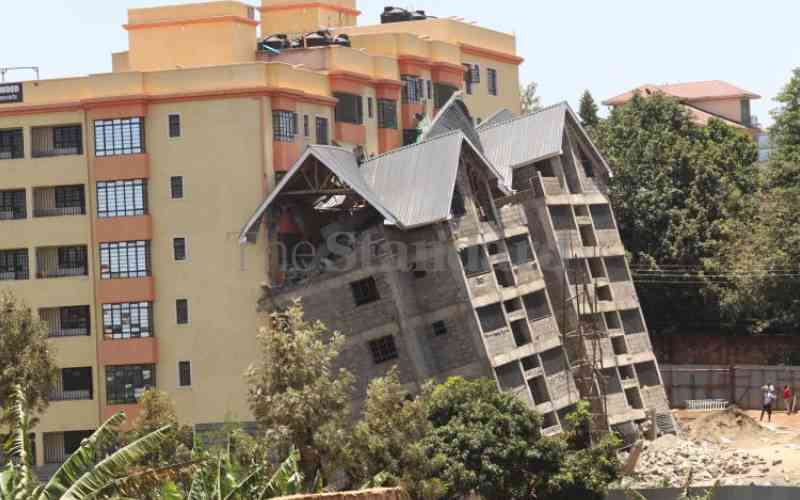×
The Standard e-Paper
Join Thousands Daily

One moment, officials from the National Construction Authority (NCA) are shepherding people out of a building that looks set to collapse and the next, under the rubble of the freshly collapsed building, lie the same people who had been asked to leave but defied orders.
This script has become common in Kenya. Sub-standard constructions are tumbling everywhere, taking innocent lives and compounding problems for a sector littered with rogue players, who are the very reason these buildings crumble.